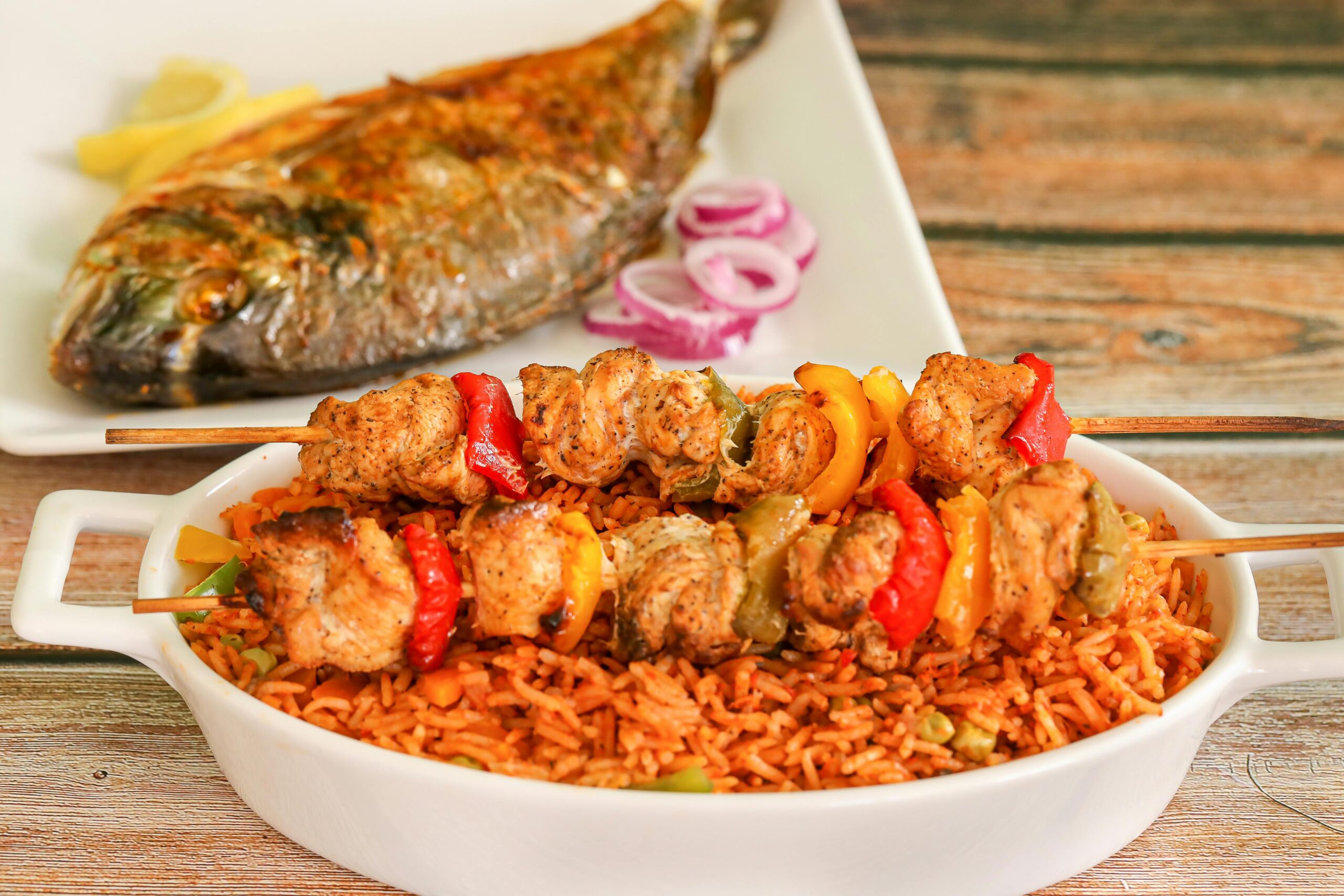Blog
Discovering Ghanaian Culture Through Food and Tradition

One of the most vibrant ways to connect with Ghana is through its culture and cuisine. From the warmth of family gatherings to the aroma of freshly made jollof rice, Ghanaian culture is rich, welcoming, and deeply rooted in history and community.
At SpeakGhana, we believe that language is just one part of the journey—culture and food complete the experience. Whether you’re learning Twi, Ga, Fante, or Ewe, immersing yourself in the traditions and tastes of Ghana brings your language learning to life.
- The Heart of Ghanaian Culture: Community and Respect
Ghanaian culture emphasizes respect for elders, hospitality, and strong family bonds. Greetings are not just polite—they’re essential. A simple “Maakye” (Good morning) or “Etɛ sɛn?” (How are you?) sets the tone for connection and kindness.
Cultural practices vary between ethnic groups, but the core values are shared across the nation:
- Community gatherings and storytelling
- Music and drumming at celebrations
- Ceremonies like naming days, weddings, and festivals
- Proverbs passed down through generations
- Deep spiritual roots expressed in both Christianity and traditional beliefs
Learning these cultural cues alongside language helps you understand not just what people say—but why and how they say it.
- Ghanaian Food – A Flavorful Experience
Ghanaian cuisine is bold, spicy, and full of soul. Food is a big part of family life and hospitality—you’re always welcome at the table. Here are just a few beloved Ghanaian dishes that carry history, flavor, and joy:
- Jollof Rice – A spicy tomato-based rice dish often served with chicken, fish, or fried plantains
- Waakye – Rice and beans cooked together, served with eggs, spaghetti, fried fish, and shito (black pepper sauce)
- Fufu and Light Soup – A soft, dough-like meal made from cassava and plantains, served with spicy tomato-based soups and meats
- Banku and Okro Soup – A fermented corn dough ball served with flavorful okra stew and fish
- Kelewele – Spiced fried plantains, crispy and perfect as a snack or side
- Kenkey and Fried Fish – Fermented corn dough wrapped in leaves, paired with pepper sauce and crispy fried fish
Each dish tells a story. Each flavor carries the identity of a region, a people, a memory.
- Culture in Language
When you learn a Ghanaian language, you’re also learning cultural expressions tied to food, greetings, family roles, and faith. For example:
- “Wo didi?” means “Have you eaten?”—often used as a greeting, showing care
- Proverbs like “Obi nnim obrempon ahyease” (No one knows the beginning of a great man) reflect cultural values
- Many Twi phrases reference food, cooking, and hospitality in everyday conversation
Language is alive in the kitchen, in the market, at the dinner table—and in the laughter of friends and family.
Ready to Experience It for Yourself?
At SpeakGhana, we offer more than just language lessons—we introduce you to the heart of Ghanaian culture. Our tutors often share cultural tips, food stories, and even traditional recipes during your lessons.
Whether you’re preparing for a visit to Ghana, reconnecting with your roots, or simply curious about West African life, we invite you to experience the full richness of Ghana—language, culture, and food together.
Learn. Connect. Speak Ghana.
And don’t forget to try some jollof while you’re
